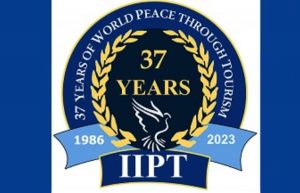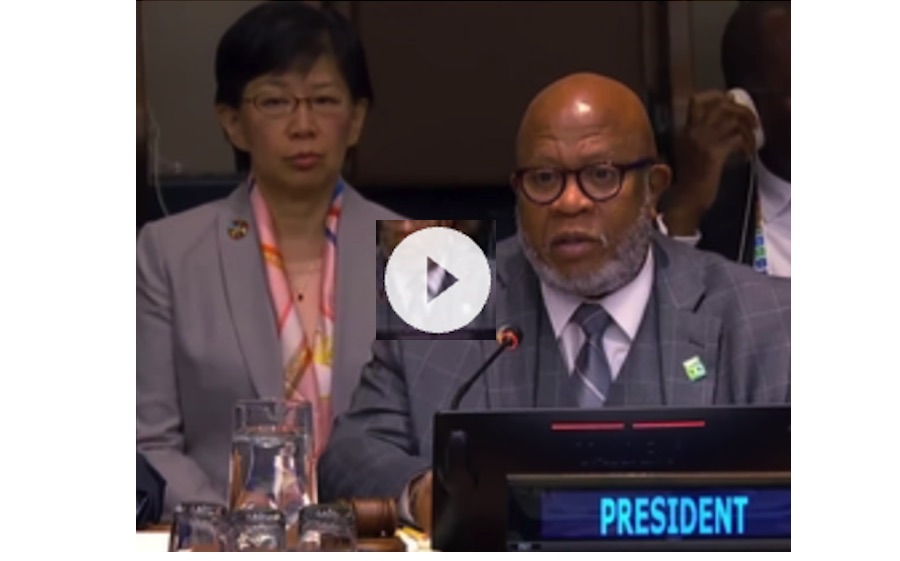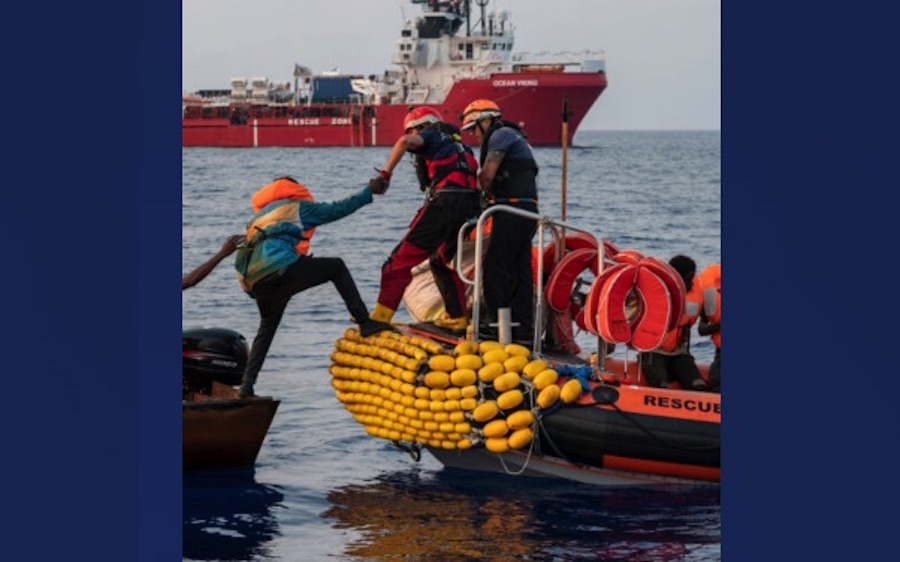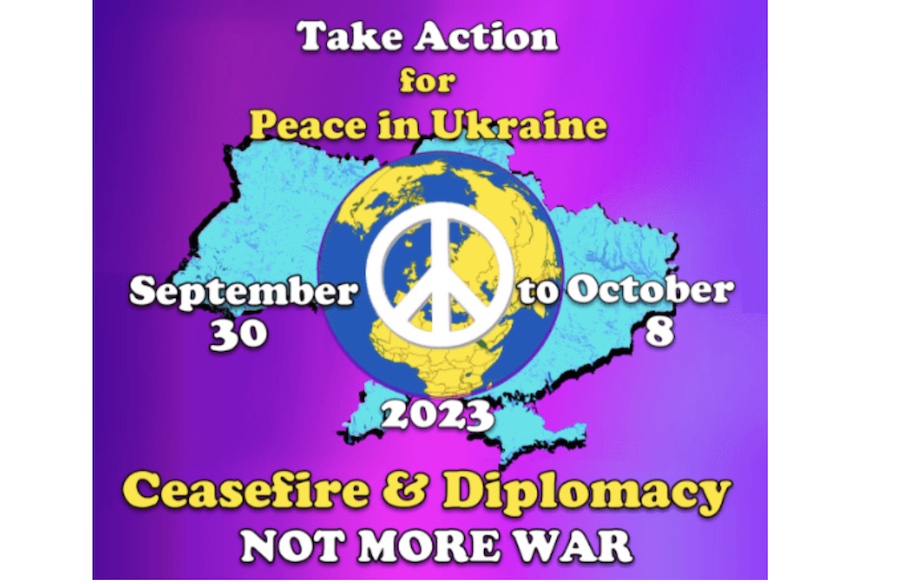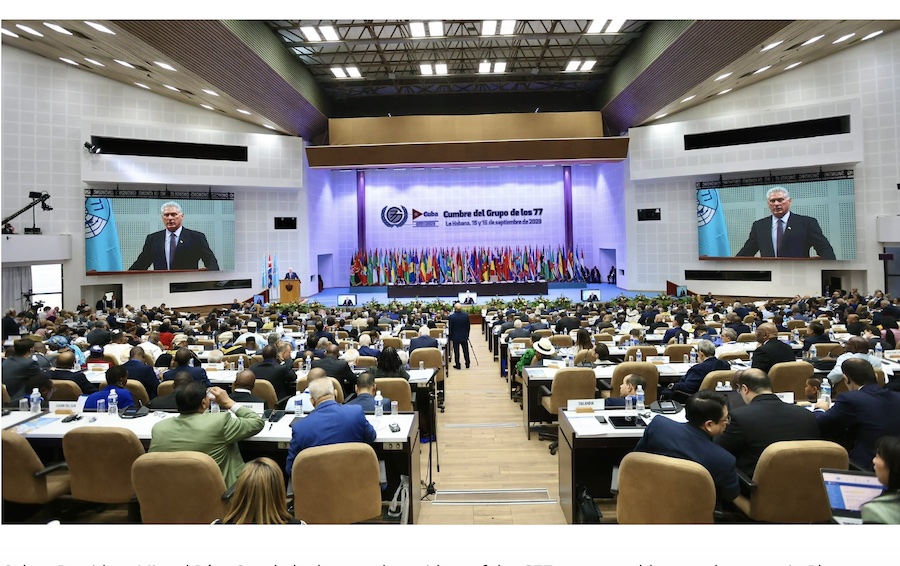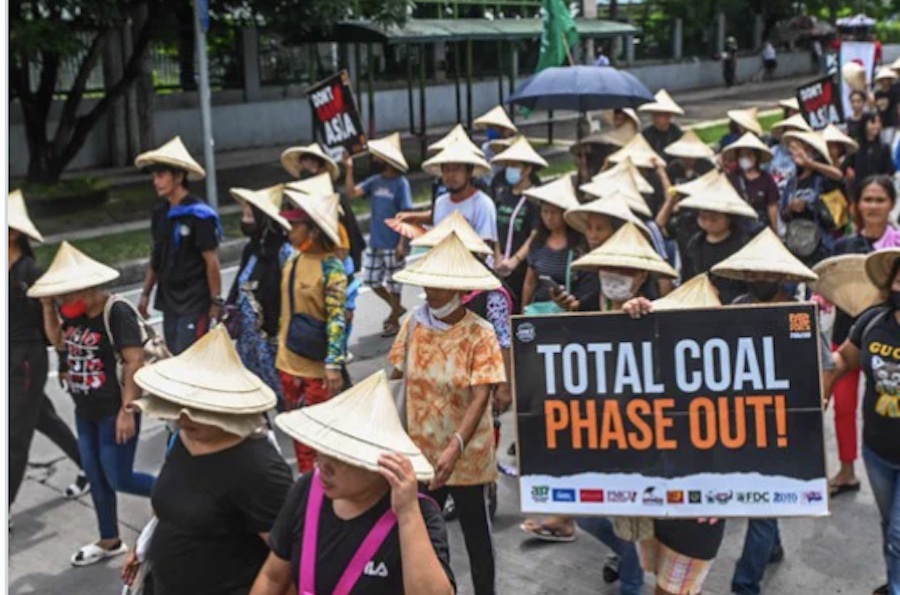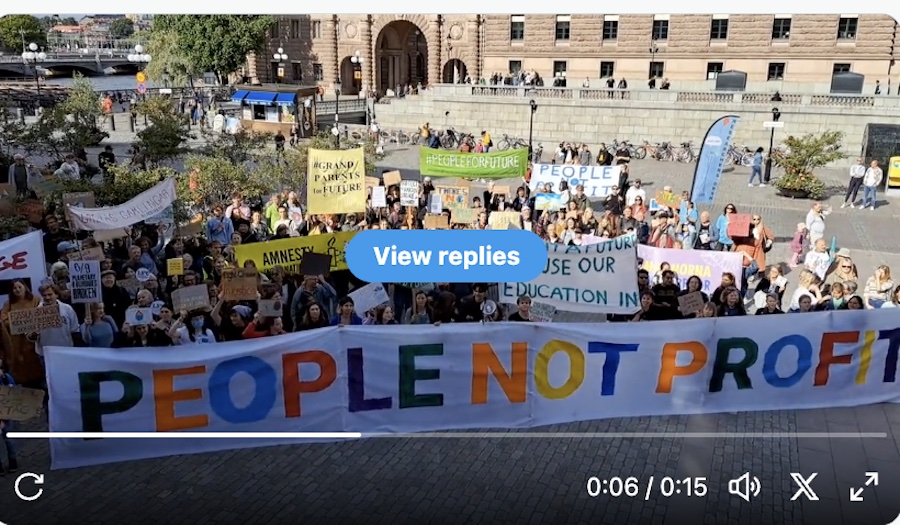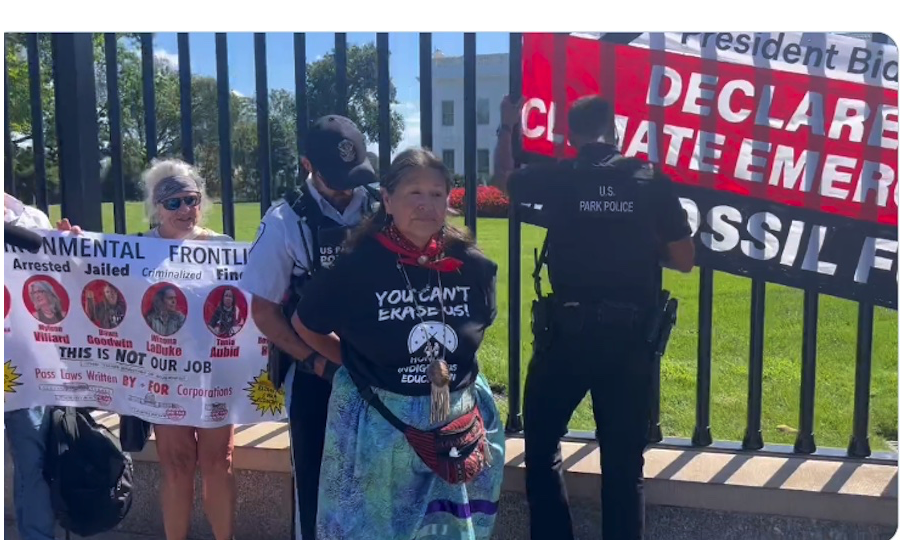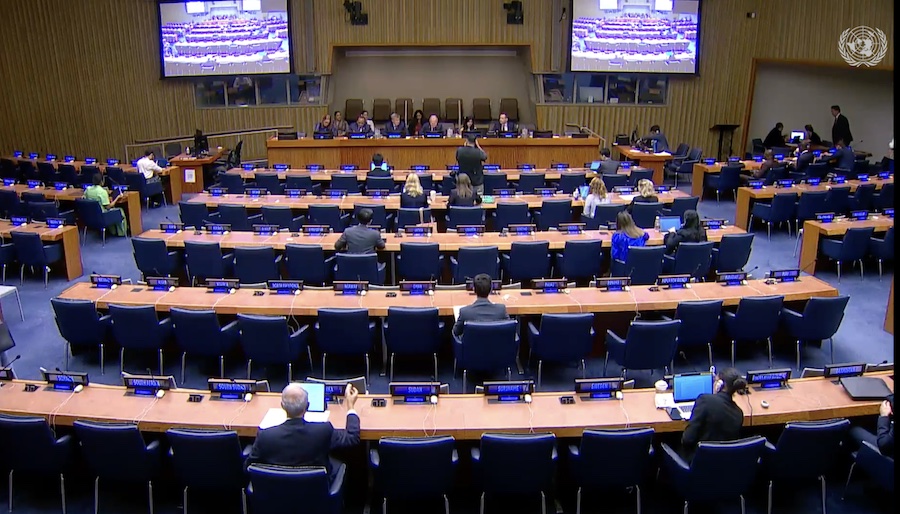… . HUMAN RIGHTS … .
An article from Equal Times (published under a Creative Commons Attribution-NonCommercial 4.0 International licence)
More than 476 million people worldwide (6.2 per cent of humanity) belong to Indigenous peoples, most of whom live alongside the societies that colonised their ancient lands hundreds of years ago. In the 21st century, after a long journey during which they were not always able to survive colonial oppression without losing their identity, language or part of their culture, Indigenous peoples have won significant gains in various regions of the world but they continue to face challenges such as discrimination and limited opportunities, making it very difficult for them to enjoy fair labour market integration. Four out of five Indigenous workers earn a living from informal employment, and the remainder most often work in highly precarious sectors, without any form of social protection, where they are exposed to all kinds of rights abuses.
To mark the International Day of the World’s Indigenous Peoples, established by the United Nations in 1982, and to coincide with the call made by the ITUC for governments around the world to sign up to the Indigenous and Tribal Peoples Convention (C169) of the International Labour Organization (ILO) – which, despite being launched in 1989, has only been ratified by 24 countries – Equal Times interviewed three Indigenous trade union leaders from three continents.
 Māori, Sami and Mapuche trade union leaders talk to Equal Times. From left to right: Laures Park (New Zealand), David Acuña (Chile) and Sissel Skoghaug (Norway). (Equal Times/Composition by Fátima Donaire)
Māori, Sami and Mapuche trade union leaders talk to Equal Times. From left to right: Laures Park (New Zealand), David Acuña (Chile) and Sissel Skoghaug (Norway). (Equal Times/Composition by Fátima Donaire)
David Acuña Millahueique, the president of CUT Chile, the main trade union organisation in his country, speaks to us from the Americas. Acuña, who became the first leader of Mapuche origin to head the union a year ago, is currently involved in the historic process of developing a new constitution for Chile and the CUT is working to ensure that it enshrines freedom of association and decent work as fundamental rights in a country where the current constitution, in force since the military dictatorship (1973-1990), still does not provide for labour rights. Sissel Skoghaug, vice president of Norway’s LO union confederation for the past decade and a representative of the Sami people, the ancient nomadic ethnic group of the Arctic and the only Indigenous people left on the continent, joins us from Europe. And from Oceania, we speak to Laures Park, who holds the position of Matua Takawaenga (Māori for “chief mediator”) with the New Zealand teachers’ union NZEI Te Riu Roa, where she is not only the main focal point for all matters relating to the Indigenous people of the island nation, but is also the acting union leader when the national secretary is absent, which is also seen as a symbolic gain for the Māori.
What is the current situation of the First Nation peoples in your country, in terms of social and labour integration or discrimination?
LAURES PARK (L.P.): In New Zealand there is still discrimination. There are lots of concerns, but there’s lots of integration as well. It depends on socioeconomic and geographical conditions. The Māori, who are about 12 per cent of the national population, tend to fill the lower paid labour-intensive jobs. They tend to be cleaners, rubbish collectors and landscape gardeners – those kinds of jobs. And yes, there are also a lot of Māori that move to the city and get jobs in the public service, but you have to move to get that kind of work. Poverty-wise, that’s probably very high for Indigenous people in New Zealand, and that’s because of poor access to education where they live, as well as lack of employment.
SISSEL SKOGHAUG (S.S.): So much injustice has been done to the Sami people. The authorities almost managed to rob an entire people of their identity and their language. As the Truth and Reconciliation Commission recently concluded, this also applies to the Kven people and the Forest Finns. [But] especially in Norway and parts of Sweden, the Sami culture has been experiencing a very strong renaissance over the last four decades. Young people, and also quite a few in my generation, are taking back the heritage that was lost two or three generations back.
DAVID ACUÑA MILLAHUEIQUE (D.A.M.): The labour situation of people of Indigenous origin comes from the forced integration of the Indigenous society into the dominant society of the colonisers. Before reaching the situation we have now, there have even been periods of slavery, which initially involved working for a very basic income as day labourers, apprentice carpenters, bricklayers or bakers, for example. Many of those who migrated from rural to urban areas worked in these trades, while the majority of the Indigenous women worked as domestic and care workers. Today, a large percentage of the new generations have achieved access to various levels of formal education, so we have moved on from the worker who formerly did not know how to read or write to the literate workers of today, enabling a minimal level of social mobility in some cases.
What about the acknowledgment and respect for First Nation cultures, languages and rights, and their integration in the work environment?
S.S.: Nowadays, in Norway we have the Sami Parliament (Samediggi), established in 1989. That is the representative body of the Sami people in the country, and it promotes political initiatives and has authority on a number of issues. At the same time, the main Sami language is also an official language in Norway. Much more has been achieved since assimilation and discrimination was the official order of the day.
L.P.: In New Zealand it goes from one extreme to the other. There is a whole sector of the population that doesn’t even know about it or doesn’t care, because Māori don’t have anything to do with their lives. But there is also another part of the population that is learning the language and participating in the customs, and is very much part of all the things that happen in the education system [where there are a number of selected schools where the Māori language is taught to everyone since early childhood].
There is a whole generation of Māori who only speak Māori, and their families only speak Māori when they are out and about, and this can cause a bit of stress with other people, mainly white people. But on the other side, when we’re downtown, other people are delighted to hear Māori being spoken out in the community. So it varies. You get some people that see it as: “Oh, God, you’re trying to hide something from us,” and other people who think that’s just lovely to hear it. And we have a Māori television channel, and the number of non-Māori who watch it is just incredible. So, as I say, [the situation] varies.
D.A.M.: In Chile, the process of Indigenous integration has been strongly marked by social discrimination and also, in many cases, employment and racial discrimination, which have led to irreparable cultural losses, such as the use of our own mother tongue, especially as of the third generation [of Mapuche people who settled in the cities in the mid-twentieth century]. We were migrants in our own land, because we had to go to the more developed cities, and we lost everything from our language to our customs with these migration and integration processes.
The first generations of Indigenous migrants had to adjust to a new way of life, and of course, they had to behave like Chileans, and ended up “half-Chileanised”, often trying to hide or disguise their Mapuche ancestry, and little by little this began to take hold, to the extent that people even avoided using their own language and customs, all in an attempt to adopt the traits of a society that was not our own and steadily adapt to it. It has only been as of the fourth generation, to which I belong, that we began to see a gradual process of self-identification with our origins. Over the last five or six years, there has also been a reclaiming of the Mapuche flag itself, which became visible in 2019 with the social uprising, during which one of the most popular and most visible symbols in the protests was the Mapuche flag. There was almost a commercial boom, the Mapuche flag was suddenly selling so well. That showed that we were recognising an identity that we had lost until then.
(Article continued in right column)
(Click here for the French version of this article, or here for the Spanish version .)
Question(s) related to this article:
The right to form and join trade unions, Is it being respected?
Indigenous peoples, Are they the true guardians of nature?
(Article continued from left column)
Has your country ratified the ILO’s Indigenous and Tribal Peoples Convention (C169), from 1989? How does that affect the current First Nation peoples’ life in the country? How important is C169 for your people?
S.S.: In 1990, Norway was the first country to ratify the ILO’s Convention 169. I am proud of LO Norway’s role in making ILO 169 happen, and making it happen first in our own country. Alongside the Constitution and the Sami Act, ILO’s Convention 169 is one of the central pillars of the Norwegian Sami policy. ILO 169 is a monument to the collective spirit of cooperation that characterised Norway at the start of the 1990s. This collective spirit also carried the majority population through a rough period of unemployment and financial and political turmoil.
L.P.: In New Zealand the government has not ratified it, and their explanation is that our new laws need to comply with a lot of other previous laws before they ratify it. That doesn’t change things for us. If we want to make a point, we will still use the C169 and it still holds weight. In some ways, [the fact that New Zealand hasn’t ratified C169] probably supports our argument.
D.A.M.: Yes, Chile ratified it in 2008. By doing so, the state of Chile committed to a state policy of recognition for Indigenous peoples and pledged to establish policies of recognition and respect for this section of society. When national policies are developed that may affect the social, cultural, political and environmental conditions in which Indigenous communities live, we always end up with a consultation. That’s as far as we have got for now, but it is an important achievement, because it is a tool that gives Indigenous communities a voice in what directly impacts on them, and that’s something we didn’t have before.
Why did you join a union, what difficulties did you find in your working environment and in the unions themselves, just for being Indigenous?
L.P.: I joined when I was a teacher. Many years ago, we were talking about how to encourage Māori people to become interested in trade unions. That’s when it became a lot more relevant for me. And since then, that’s been the push – to make sure that unions work for Māori.
We have a saying, that was said by a very old tipuna [ancestor]: “There is but one eye of the needle through which all threads must pass: the white, the red, the black.” For our union, that actually is exactly the sentiment that we think people should embrace, because only by joining together and going in the same direction can we make things work. Otherwise, we’re pulling against each other.
D.A.M.: I’ve been working since I was 17; I had to support my family from a very young age and I’ve always been closely linked to work. When I was getting to know the trade union world, one day a union came to look for representatives at the supermarket where I was working, and there were two colleagues who put themselves forward as union reps. Three could be elected, and these guys had no class consciousness, let’s say, they were not very pro-worker, they were more pro-management, they were very close to the company. So, I said, “No, if we want to fight for labour rights, we need to have agreements with the company, but also disagreements and to fight for the rights we believe in.” It was time, a decision, to say: “Either I keep watching everything stay the same, or I make some kind of change,” and I chose to make a change, with all the sacrifices this also entails.
Given the leadership position that you have reached in your organisation, what does that symbolise for you and the continued struggle for Indigenous rights?
D.A.M.: It is a source of pride for me and my family. My first May Day as president was a personal milestone for me. That day, I acknowledged my identity, I said: “I am a retail worker, I am Mapuche and I come from an Indigenous community in Lleulleu, in the Los Ríos region.” More than a trade union leader, I see myself as a worker and, today, I also strongly recognise my historical legacy: that my mother was a migrant from the south of Chile to the capital, and that we lost our language, we lost part of our culture, but we did not lose our attachment to the territory. Recognising this is very important to me, because I feel proud to be representing, in this role, a people as combative as the Mapuche people were and are today in their territorial claim, which is still pending.
S.S: I have in later years discovered that my own family lost most of our Sami and Kven identity, including the language, as a result of the many decades of Norwegianisation policy. But we are taking back our heritage, with my daughter and son leading the way with language studies and much more. In my public appearances, I am very proud to be wearing the gakti (Sami traditional dress), which I recently had made. I feel that this process in itself is a victory over the injustice that was done.
How can the trade unions better help the Indigenous and First Nation peoples reach real integration in the working world?
D.A.M.: With solidarity and respect. Respect for identity, for beliefs, but also solidarity, inclusion within the world of work.
S.S.: We will look into what we in LO Norway can do to help combat racism, like we have done in the workplace. So far, in the working world, LO Norway has been a strong advocate for the legislation against discrimination now in place in Norway. Thanks to that, nowadays employees and job applicants enjoy equal opportunities, regardless of their ethnicity, religion, sex or responsibilities as caretakers. All Norwegian employers are obliged to work actively, in a targeted way and systematically, to promote equality and prevent discrimination in the workplace, according to the Equality and Anti-Discrimination Act. This employer activity duty is a preventative work that employers are expected to do before incidents of discrimination occur.
L.P.: Trade unions could change themselves internally and employ more Indigenous people in their organisations. And they shouldn’t be afraid to promote these things amongst the affiliates; at the moment it is seen a little bit as window dressing. But we all belong to this country, so we all should be doing the same thing across the board, not just letting people maybe be inclusive or maybe just say, and this is me being rude: “Go over there and play with your marbles while we get on with the real work over here”. Trade unions need to be more inclusive and more promotional about First Nations, so that we are not just there to sing the songs and do the opening prayer.
How can First Nation peoples contribute, with their particular sensibilities, culture and experiences, to the current global debates about just transition, social justice, labour and human rights and the democratic health of our societies?
D.A.M.: In Chile, the Indigenous peoples come from a culture of struggle that calls for many rights that were taken from them: the right to land is one of their main demands, but there are also the ancestral cultures, especially ancestral medicine, which now forms part of the entry of Mapuche culture into society in a way that was inconceivable before, because there has been, over the last 15 or 20 years, a cultural shift that has allowed the culture of the Indigenous peoples to re-emerge. Today almost every district has a Mapuche ruca, a ceremonial centre for gastronomy, culture and traditional medicine, such that, beyond a flag and a combative tradition, what is also emerging is an ancestral culture that speaks of solidarity, inclusion and participation, respect for elders and for one’s own body.
S.S.: I think we need to go back to that spirit of cooperation that characterised Norway at the start of the 1990s. We live again in a time of crisis and a lot is at risk. The polarisation we see both in the world and in our part of it gives room for forces that do not wish neither minorities, nor majorities or democracies well. Rights that have been won will not automatically be there forever. The fight is never over. We know all about this in the labour movement.
L.P.: When I think about just transition, and particularly climate change as well, I think Indigenous people or First Nations people have a lot to offer. But the powers that be don’t ask. For example, when you think about areas that are now suffering from drought and lack of water and so on, Indigenous people in Australia have lived like that for years. So, how come people don’t talk to them? About how you survive in those situations? And what is it that you bring to the table about those conversations? There are ways of doing things wisely, sustainably, that Indigenous people have always done, that they will continue to do. There’s a whole lot of that knowledge that First Nations hold and probably just use it like the everyday life common sense that it is for them. If anybody bothered to investigate or talk about it, I think First Nations have a lot to offer, but one: do they have a voice? And two: do people listen to what they have to say?
